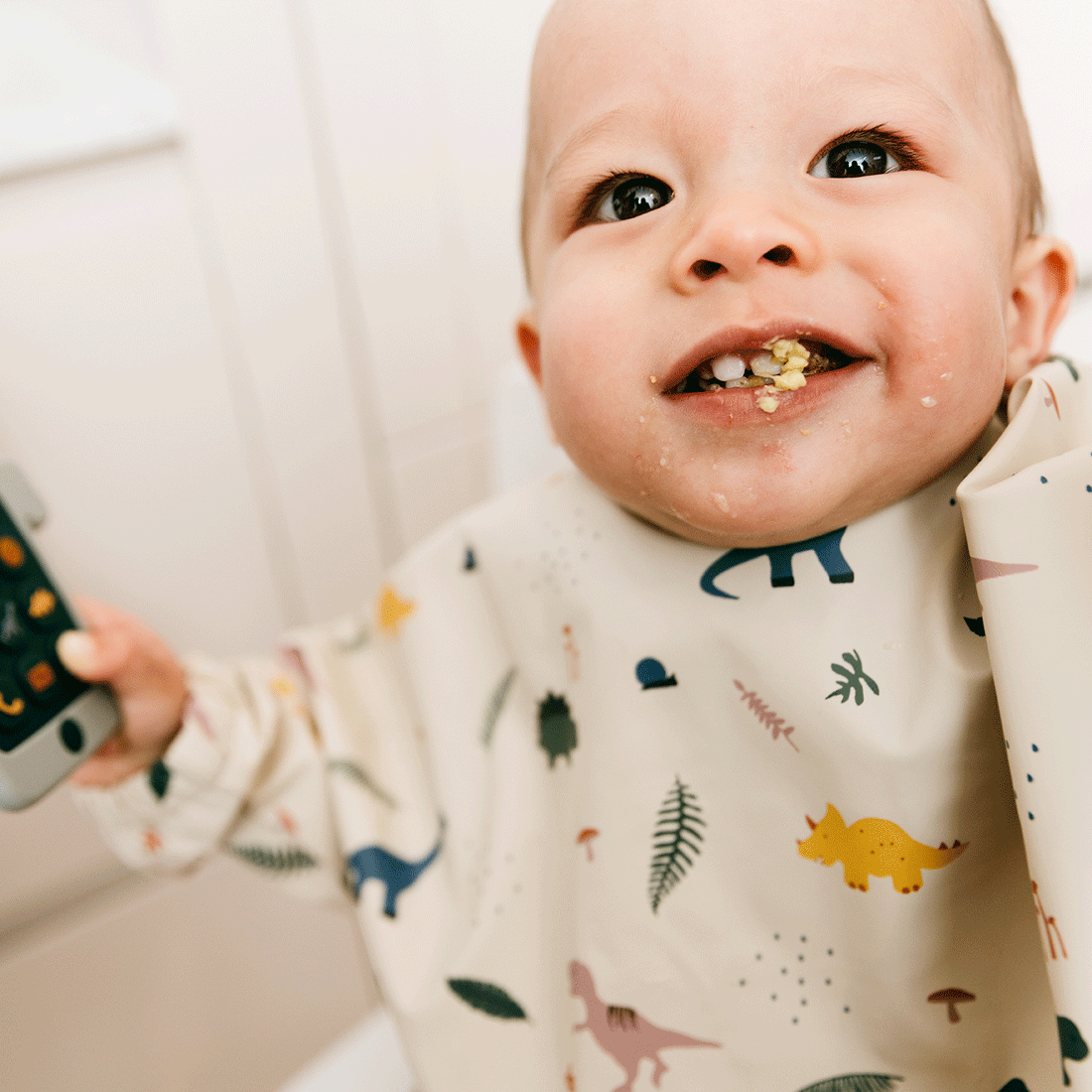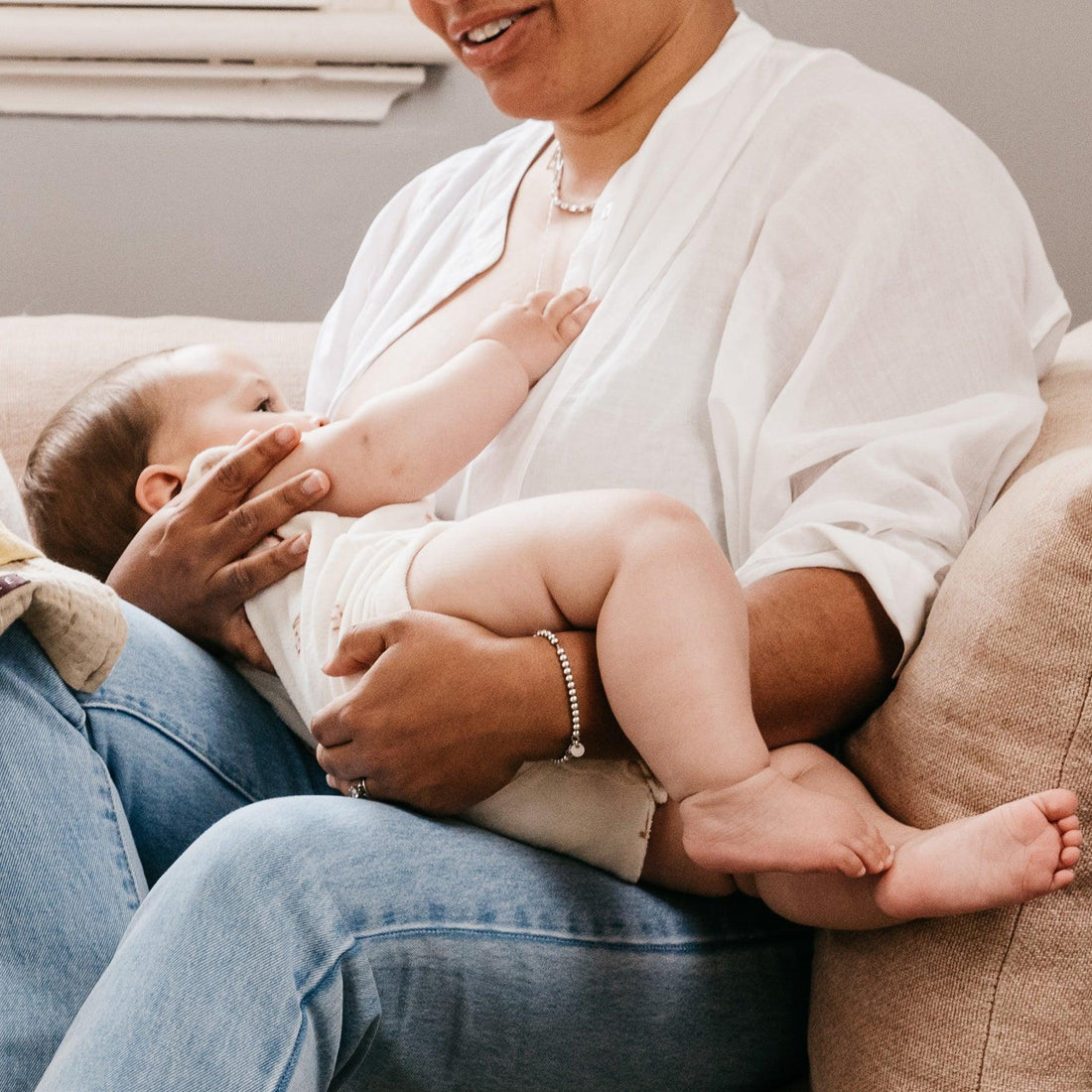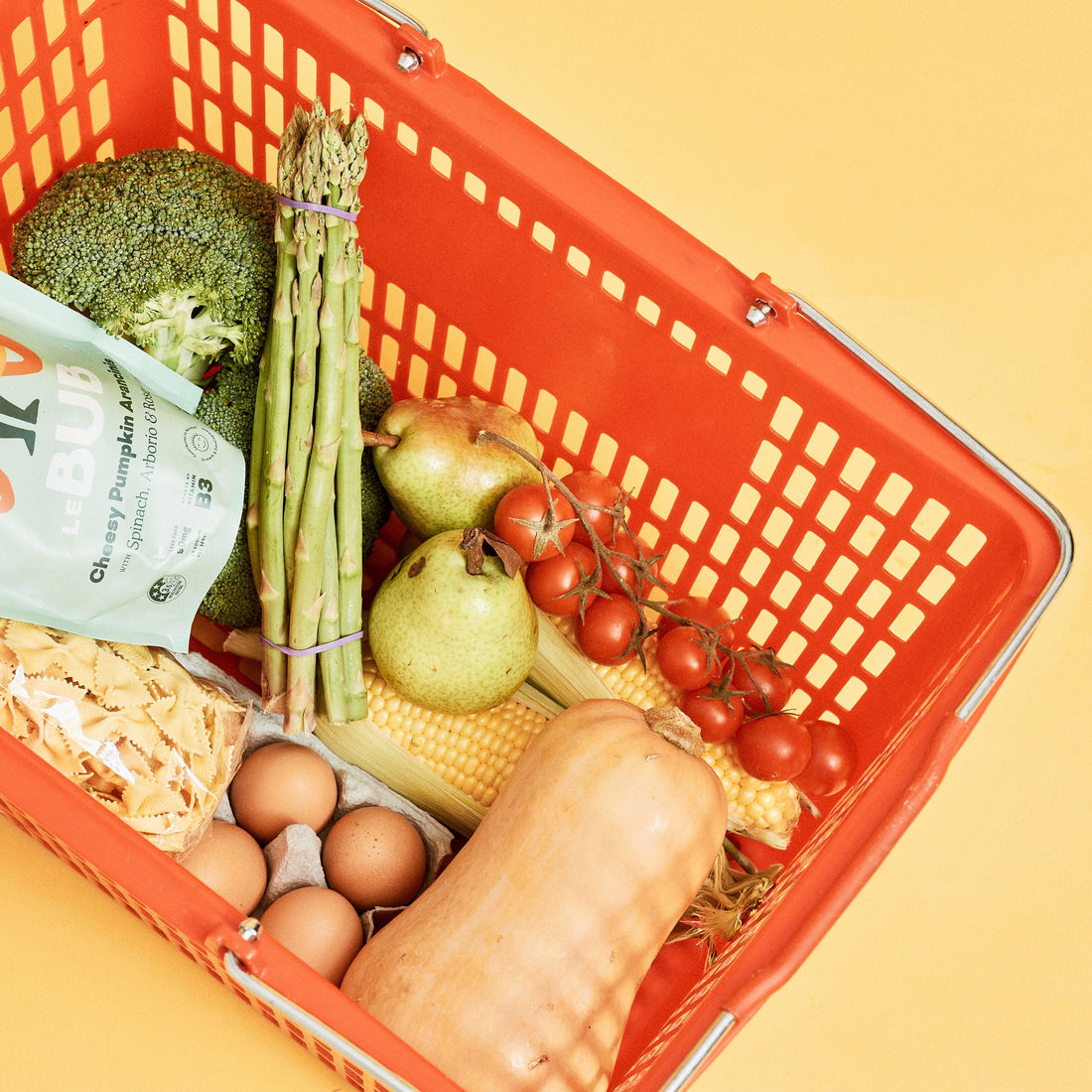When feeding goes beyond the boob and bottle.
You’ve just got the milk thing down, you might even have a feeding schedule (look at you!) and then it’s time to start thinking about giving your baby real food! Like many of the baby “firsts” it can feel a bit daunting — make headspace for allergies, choking, ruined carpets etc. — but introducing solids can be a really fun experience for you and your baby, and once their “established”, incredibly freeing for you as a food source mum. Here’s our fear-free, you-got-this intro to everything you need to know about starting solids.
When to start baby food?
The recommendation on when to start your baby on solids is “around six months but not before four months”, but it all depends on your baby. For solids, your baby needs to have good head and neck control and be able to sit up supported. Then, it’s about looking out for what paediatricians call “the signs”. These all revolve around your baby showing interest in food. Things like them watching you while you eat, reaching for food, bringing things to their mouth and the loss of their thrusting tongue reflex — you’ll know it when you see it.
When to stop breastfeeding?
Regardless of when you start introducing solids, milk (breast or formula) continues to be a baby’s main source of nutrition until they are 12 months. When you do choose to wean your baby from breastmilk, we have some advice that might help.
“Food is fun until they’re one!”
Many parents find introducing solids a frustrating and worrying experience. Nothing like spending a bomb on all-organic ingredients to create a beautiful, nutritious baby food, only to have it refused and thrown to the floor by said baby. Parents worry that their kids aren’t eating enough, but the experts want you to relax. “Don’t sweat the small stuff - kids will have good days and bad in terms of eating,” says Paediatrician Dr Scott Dunlop of Sydney Paediatrics and Kids Consult. Instead of stressing about what they’re eating (or what they’re not), he advises focusing on making eating a positive experience. “The most important healthy eating habits are often behavioural in nature, therefore parents also need to model healthy habits. Feeding should be a positive event, not a chore or a battle. Becoming engaged in emotional battles over food will never lead to the establishment of a positive feeding experience.” Remember that your baby’s main source of nutrition is milk, and as long as they’re gaining weight and continuing to grow, a little food fussiness isn’t a problem. If they are nearly seven months, and still yet to start solids, it’s recommended you seek advice from your GP or child and family health nurse.
Baby Food Allergies
Child allergies have a much greater prevalence than generations before. There is evidence to suggest that the advice that was given to parents in previous years, which was to avoid allergenic foods, has attributed to the rise. A study published in the New England Journal of Medicine in 2015 found that children who were exposed to peanuts as babies were far less likely to be allergic to them at the age of five, than those who were not. It is now advised that all babies, including those with a high allergy risk, try foods that cause allergies from around six months.
Forbidden foods
High allergenic foods have the green light, but there are some foods babies can’t have. Cow’s milk, honey, fruit juice and junk food (also not great for adults) are all banned. Junk food and fruit juice are on the no list because of the high sugar content, honey because of a possible disease-causing toxin it may contain, and milk because of allergen and nutrition reasons, but milk-based products and other dairy are OK.



















